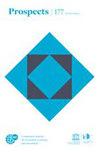Upholding “the educational” in education: Schooling beyond learning and the market
Q1 Social Sciences
引用次数: 0
Abstract
Abstract This article argues that schooling’s driving purpose should be to educate . Given heightening global crises and the potential of education to respond, we agree with the spirit and focus of UNESCO’s (2021) A new social contract for education intervention. Education/schooling should be motivated by progressive, critical visions to contribute to more sustainable and just human and planetary futures. Embodied-affective-cognitive technologically-mediated processes of becoming educated , however, are not a force that can smash injustice or ecologically destructive capitalism. Educationally speaking, there is no shortcut to cultivating students as “change agents” for sustainable futures. Hannah Arendt’s essay “The crisis in education” (2006) is instructive in clarifying the function of schooling and in categorically distinguishing adults from children, education from politics, and education from learning. While human learning proliferates in multiple ways independent of existential/ethical mooring, education ultimately requires committed adults spending time with, and socioemotionally and intellectually supporting, children to deepen their understanding of the world and others, giving meaning and significance to their/our lives as part of larger collectives called upon to sustain and renew a common world.坚持教育中的“教育”:超越学习和市场的教育
摘要本文认为学校教育的驱动目的应该是教育。鉴于日益加剧的全球危机和教育应对危机的潜力,我们赞同教科文组织(2021年)《教育干预的新社会契约》的精神和重点。教育/学校教育应以进步和批判的眼光为动力,为更可持续和公正的人类和地球未来作出贡献。然而,具体化-情感-认知-技术介导的受教育过程并不是一种可以粉碎不公正或破坏生态的资本主义的力量。从教育角度讲,培养学生成为可持续未来的“变革推动者”没有捷径。汉娜·阿伦特(Hannah Arendt)的文章《教育危机》(The crisis in education, 2006)在澄清学校教育的功能、明确区分成人与儿童、教育与政治、教育与学习方面具有指导意义。虽然人类的学习以多种独立于存在/伦理的方式扩展,但教育最终需要有责任心的成年人花时间与儿童在一起,并在社会情感和智力上给予他们支持,以加深他们对世界和他人的理解,赋予他们/我们的生活意义和重要性,作为被呼吁维持和更新共同世界的更大集体的一部分。
本文章由计算机程序翻译,如有差异,请以英文原文为准。
求助全文
约1分钟内获得全文
求助全文
来源期刊

Prospects
Social Sciences-Education
CiteScore
13.10
自引率
0.00%
发文量
37
期刊介绍:
Prospects provides comparative and international perspectives on key current issues in curriculum, learning, and assessment. The principal features of the journal are the innovative and critical insights it offers into the equitable provision of quality and relevant education for all; and the cross-disciplinary perspectives it engages, drawing on a range of domains that include culture, development, economics, ethics, gender, inclusion, politics, sociology, sustainability, and education.
Prospects aims to influence a wide range of actors in the field of education and development, whether academics, policy-makers, curriculum-developers, assessors, teachers or students. Unlike other journals in the field, which deal only with theoretical or research-related aspects, Prospects also focuses on policy implementation and aims at improving the extent and effectiveness of communication between theorists and researchers, on one side, and policy makers and practitioners, on the other.
The journal thus welcomes innovative empirical research, case studies of policy and practice, conceptual analyses and policy evaluations, as well as critical analyses of published research and existing policy.
Founded in 1970 and published in English by Springer, Prospects is among the most well-established journals in the field. Editions in Arabic and Mandarin Chinese are available as well.
The journal is edited by the International Bureau of Education (IBE), in Geneva. A leading UNESCO Institute and a global center of excellence in curriculum and related matters, the IBE is recognized and valued for the specialist knowledge and expertise that it brings to Member States, promoting new shared global understanding of curriculum, teaching, learning, and assessment.
 求助内容:
求助内容: 应助结果提醒方式:
应助结果提醒方式:


